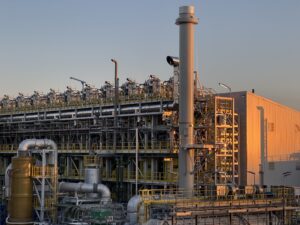Plastic Energy (London, U.K.; www.plasticenergy.com), a global leader in chemical recycling, has announced the production of its first batch of TACOIL™ at its joint venture plant with SABIC (Riyadh, Saudi Arabia; www.sabic.com) in Geleen, the Netherlands. This marks a key milestone on the road to full commercial operations.
TACOIL™ is made from hard-to-recycle post-consumer plastic waste that would otherwise be incinerated or sent to landfill. It serves as a replacement for conventional naphtha in existing petrochemical plants, enabling the manufacture of food-contact packaging, medical-grade plastics and other high-quality products. The polymers produced at the plant will significantly increase commercial volumes of circular polymers which have been used by brand owners in a variety of consumer and packaging products since 2019.
Plastic Energy’s patented TAC™ chemical recycling process breaks down mixed plastic waste using heat in an oxygen-free environment. Once fully operational, the plant will recycle 20,000 tonnes of plastic waste per year.
The technology, already proven at industrial scale at Plastic Energy’s plants in Spain, is designed to plug directly into the existing plastics value chain. Less than 30% of Europe’s 32 million tonnes of plastic waste is currently recycled.1 The SPEAR facility, which is set to be the first example of a third-party chemical recycling technology being integrated into an existing petrochemical facility, will help support and enable the EU’s goal under the Packaging and Packaging Waste Regulation (PPWR) for all packaging to be fully recyclable by 2030.
Ian Temperton, Chief Executive Officer of Plastic Energy, said: “Producing our first TACOIL™ at SPEAR is a major step forward for the plastic recycling industry. It underscores the capabilities of Plastic Energy’s technology, the robustness of our process and the dedication of our excellent team. We value the collaboration with our project partner SABIC and are proud to have achieved this milestone together.
“Recycling plastic waste into new plastics is critical to building a circular economy — and that’s exactly what this plant delivers. It boosts recycling rates, helps reduce CO2 emissions by diverting used plastic from incineration, and shows what’s possible when innovation meets scale.”

This project is being executed with a Top Sector Energy Subsidy from the Ministry of Economic Affairs in the Netherlands.